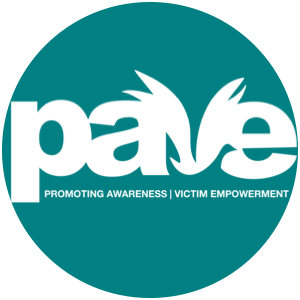Responding to Disclosures of Sexual Violence
According to RAINN (2019), there are 433,648 survivors (age 12 or older) of rape and sexual assault each year in the United States.
It’s not an easy task for someone to disclose that they have been sexually assaulted, despite it being such a commonly reported experience. This type of crime sometimes brings profound senses of humiliation and shame, as sex and sexuality are not talked about much in our society. Sexual assault is about the perpetrator having power and control. This power and control involves the survivor’s bodily autonomy, which many are taught to be ashamed about. In cases of sexual violence, the trauma and shame that follows can be deeply rooted.
There are a plethora of reasons why it might be difficult for someone to come forward to say that something happened to them. Survivors might be ashamed or embarrassed if the perpetrator was someone that they knew or trusted, or if drugs and alcohol were involved. Or maybe they have a fear of not being believed, or that they’ll be blamed. These reasons are common, valid, and oftentimes an adaptive attempt to make sense of what happened.
The way we react to disclosures has a critical impact on how the survivor copes moving forward, as well as what they choose to do next. Keep in mind that the survivor is disclosing to you because they view you as a safe and trustworthy person, which allows for a great opportunity to support them in their journey to healing. First, if a friend, peer, family member, or colleague discloses an incident of sexual assault to you, there are a few common pitfalls we want to avoid saying in order to be as supportive and empowering as possible.
Don’t:
Appear shocked or over-reactive in phrases or facial expressions
Ask for details that may be unnecessary or triggering (e.g. questions about their behavior or appearance)
Touch the survivor without asking
Force the survivor to report
Question why they didn’t do things [that society expects] like fight back, say no, or report to the police immediately after
Tell anyone what the survivor shared with you without their permission
Promise them everything will be okay
Being there for the survivor that has disclosed to you can look differently depending on the relationship, circumstances, and environment. Sometimes it might mean providing them with the right resources for help or encouraging them to receive medical attention if needed. Maybe reporting to law enforcement is something they’re interested in, or perhaps processing with a trauma-informed counselor.
Often though, the best way we can support a survivor is simply by listening. Remember to stay engaged while listening, reflect on what has been said, and withhold any judgements or unsolicited advice. Even if the moment feels overwhelming or uncertain, cultivating a sense of empathy, compassion, and kindness can go a long way for someone who is struggling. Don’t worry about finding the “perfect” things to say. The survivor will remember that you were there and that you believed and affirmed them, not the specific words you used. If you’re struggling to think of how to respond, here are some empowering phrases to disclosures of sexual assault.
Do:
“Thank you for trusting me with this. I believe you”
“This wasn’t your fault”
“You didn’t deserve this”
“I’m here to support you however I can”
“What do you need right now?”
“How can I best support you through this?”
“We will get through this, together.”
“You are not alone.”
“Can I help you find a few local resources?”
Supporting survivors doesn’t end after the initial disclosure. Be sure to check in from time to time to remind them that you care and want to be there for them in their healing journey. As always, avoid using phrases that suggest judgement. Regaining a sense of self, safety, and wellness after sexual assault is an on-going process without a definite timetable. Even though it can be difficult to watch a loved one struggle, remain supportive by recommending reliable resources as well as encouraging continuous self care.
Being on the receiving end of a disclosure of sexual assault can be a difficult experience. These conversations have the potential to be triggering, whether you have a past history of sexual violence or not. By maintaining a healing environment for both survivors and ourselves, we can create a more empowering and uplifting environment for all.
If you or someone you know has experienced sexual violence, PAVE is here for support, resources, and education. Reach out when and if you need to, we are here to support you!
Written by PAVE’s Outreach Intern: Lisa Conolly
